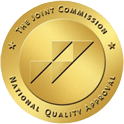Everyone wants to enjoy the comfort and independence of living at home, but age, disabilities, and chronic conditions can make doing so challenging—or even dangerous. With home care, you can remain at home safely while managing a long-term condition or recovering from a health issue. However, it can be overwhelming to know which type of home care is best.
The term home care encompasses a wide range of in-home health services, from skilled nursing care and physical therapy to personal care. Professional caregivers may be registered nurses, physical or occupational therapists, or home health aides. Each type of care can be short- or long-term and may include one type of care or a combination of medical and non-medical services, depending on your needs.
In this article, we’ll discuss the difference between medical and non-medical home care and what each kind of care includes so you can make an informed decision for yourself or a loved one.
Do you or a loved one need assistance to retain your independence at home? LightSpring Home Care can help. We provide world-class non-medical home care to foster your safety and help you continue to thrive at home. Contact our care coordination team today to learn more!
Non-Medical Home Care
Non-medical home care is designed to help seniors and those with disabilities retain some independence while fostering their safety and well-being. Duties such as grooming, light housekeeping, and meal preparation can be performed by home health aides (HHAs) or certified nursing assistants (CNAs).
Personal Care
Non-medical personal care can be provided with or without a prescription from a doctor. Depending on the client’s needs, care may be provided either short- or long-term. Short-term care is typically designed to help someone while they recover from an injury or illness. Long-term care is beneficial to seniors and those with permanent conditions that make it difficult to perform certain daily activities.
Personal Care Services
Non-medical home care services typically include assistance with routine household and personal activities. The goal of these services is to foster independence and safety by providing help when needed.
Some of the services included in this care are:
- Grooming, bathing, dressing, and bathroom use
- Mobility assistance and fall prevention
- Transfers (e.g., from bed to wheelchair)
- Meal planning, preparation, and feeding assistance
- Light housekeeping and laundry
- Transportation (e.g., appointments and errands)
- Companion care (e.g., hobbies and activities)
- Safety and wellness supervision for memory care clients
How Much Does Personal Care Cost?
In New Jersey, non-medical personal care services cost between $32 and $33 per hour. If you receive a standard 44 hours of care per week, the cost will be approximately:
- $1,452 per week
- $5,808 per month
- $69,696 per year
Though these services are usually paid out of pocket, the cost of non-medical personal care services is significantly less than medical private-duty nursing or home health care.
Benefits of Personal Care
Simply put, personal care is custom-tailored to each individual to make their daily life easier. As people age, it can become more difficult to complete routine tasks like buttoning a shirt, preparing food, keeping yourself clean, or tidying your home. With personal care, you always have someone nearby to lend a helping hand so you can continue enjoying a fulfilling life at home.
Those with degenerative conditions—such as Alzheimer’s, dementia, or Parkinson’s disease—can also benefit from personal care services. Not only can an HHA or CNA assist with mobility, hygiene, and nutrition, but they can also monitor any health changes to prevent emergencies.
Personal care can also improve your mental and emotional health through companionship. Companion care services—like those offered at LightSpring Home Care—provide enrichment through activities and socialization.
Medical Home Care
Medical home care—also called skilled or private duty nursing care—is usually long-term and designed to help those with chronic or degenerative illnesses and conditions, such as:
- Traumatic brain injury (TBI)
- Spinal cord injury (SCI)
- ALS or MS
- Permanent disabilities
Nurses providing medical home care are qualified to administer medication, care for wounds, and handle medical emergencies.
Nursing Care
Home-based skilled nursing must be prescribed by a doctor. Care is usually scheduled on an hourly basis, from just a few hours a week to 24/7 medical monitoring and care, including overnight shifts.
Nursing Care Services
Skilled nursing care includes in-home medical care for a chronic condition, illness, or disability. Some of the services included in this type of care are:
- Ventilator care
- Tracheostomy care
- Vital sign monitoring
- Administering medications
- Ostomy/gastrostomy care
- Feeding tube care
- Catheter care
How Much Does Nursing Care Cost?
In-home care from a registered nurse costs about $40 per hour on average nationwide. If you need medical home care for the standard 44 hours per week, it will cost approximately:
- $1,760 per week
- $7,040 per month
- $84, 480 per year
Individuals who pay these costs out of pocket may be able to set up a payment plan with their home care agency to ease their financial burden.
Home Health Care
Home health care is short-term care designed to help you recover from surgery, an injury, illness, or other condition. When you receive this kind of care, medical professionals will visit your home for short periods to:
- Guide you through physical or occupational therapy
- Monitor your condition and progress
- Provide personal care, if needed
Home health care must be prescribed by a doctor and is usually scheduled after a hospital stay.
Home Health Care Services
Since home health is a specialized form of care, it includes a wide range of services meant to foster an individual’s recovery. These services often include:
- Short-term nursing
- Physical therapy (PT)
- Occupational therapy (OT)
- Speech-language pathology (SLP)
- Medical social work
- HHA services
How Much Does Home Health Care Cost?
On average, throughout the United States, home health care costs approximately $87 per hour. Since home health care is typically short-term for just a few hours a day, this may still be more cost-effective than residential rehabilitation care.
Which Type of Home Care is Right For You?
If you are recovering from an illness or surgery and need help with wound care, feeding tube care, or other forms of medical support, a skilled nurse or other medical professional may be right for you. In these cases, you’ll need your doctor to prescribe nursing care or home health care.
However, if you need assistance with your daily routine or support in managing a disability, condition, or injury, non-medical home care is the best option. This type of in-home care is the most versatile, often cost-effective, and can be scheduled without a prescription.
Get Non-Medical Home Care From LightSpring Home Care Today
Non-medical home care not only offers individuals companionship and assistance with routine tasks but also provides support and monitoring for those with chronic conditions—all while empowering them to remain comfortable and secure at home.
Could your loved one benefit from non-medical home care? Contact LightSpring Home Care to learn more about our non-medical home care services.




